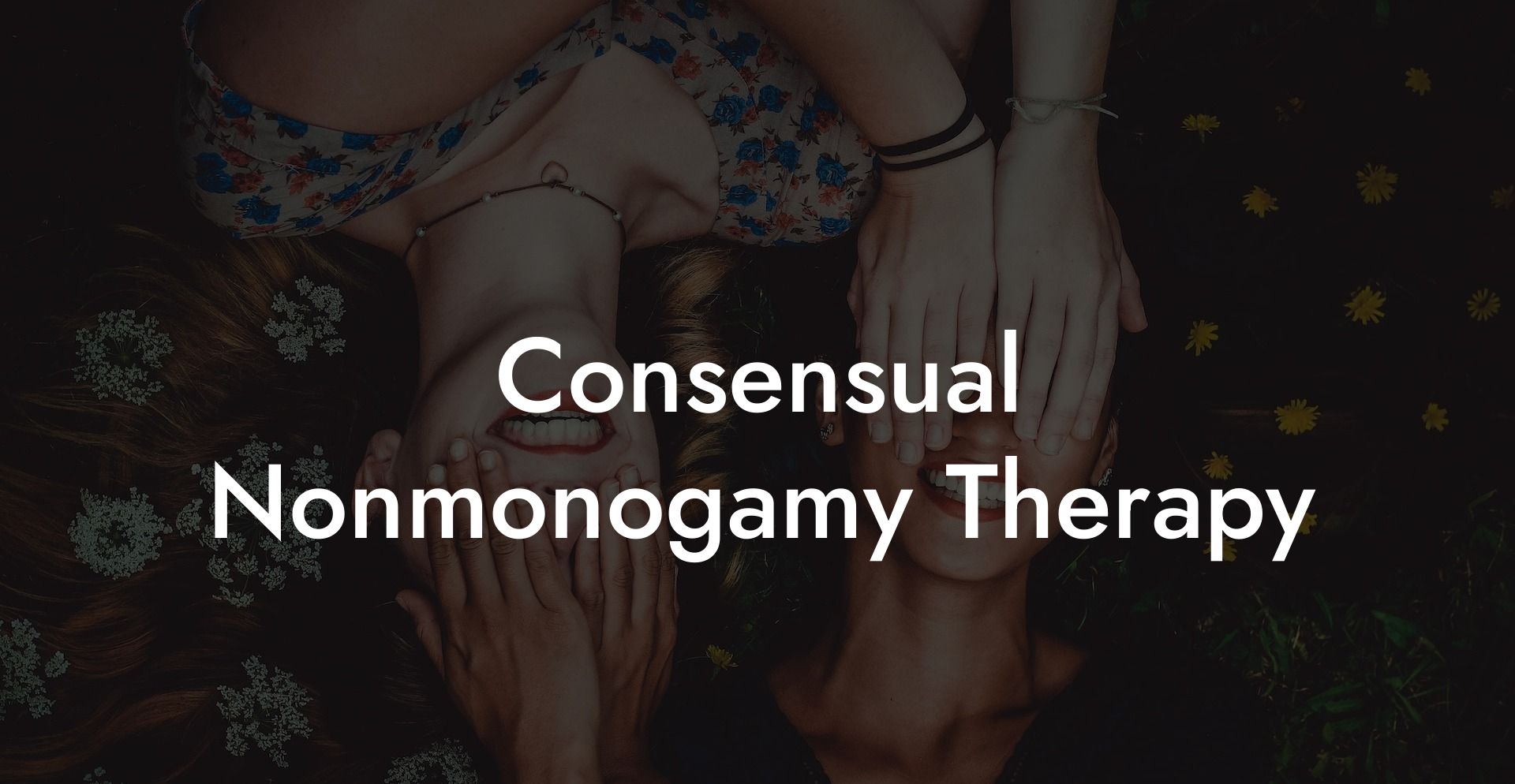Are you interested in exploring consensual nonmonogamy but unsure of how to navigate the intricacies of this unique relationship dynamic? If so, consensual nonmonogamy therapy might be the perfect solution to help guide you and your partner(s) on your journey. In this article, we will delve into what consensual nonmonogamy therapy is, how it can benefit individuals and couples, and provide an example of a successful therapy experience to give you a clear understanding of the process.
Consensual Nonmonogamy Therapy Table of Contents
What is Consensual Nonmonogamy Therapy?
What is Consensual Nonmonogamy Therapy?
Consensual nonmonogamy therapy is a specialized form of couples therapy that focuses on helping individuals and couples navigate the unique challenges presented by nonmonogamous relationships. This can include issues surrounding communication, trust, jealousy, and boundaries, among others.
Types of Consensual Nonmonogamy
- Polyamory: The practice of engaging in multiple romantic relationships with the consent and knowledge of all involved.
- Swinging: Also known as "the lifestyle," swinging involves couples exchanging partners for sexual encounters.
- Open relationships: A committed relationship where one or both partners are allowed to have sexual encounters with others, often with specific boundaries and rules in place.
Benefits of Consensual Nonmonogamy Therapy
Consensual nonmonogamy may seem daunting to the uninitiated, but with the proper guidance and support from a qualified therapist, it can be a fulfilling and exciting path to explore. Here are some key benefits of consensual nonmonogamy therapy:
Improved Communication Skills
Effective communication is a cornerstone of any successful relationship, and nonmonogamous relationships are no exception. Therapy can help partners develop the skills required to discuss their desires, needs, and boundaries openly and honestly, ensuring that all parties remain on the same page throughout the journey.
Conflict Resolution
As with monogamous relationships, conflicts will inevitably arise in nonmonogamous relationships. Therapy can help individuals and couples develop the skills necessary to effectively navigate and resolve these conflicts in a healthy, productive manner.
Addressing Jealousy and Insecurity
Jealousy and insecurity can be significant challenges in consensual nonmonogamy. A skilled therapist can help uncover the underlying causes of these feelings and provide guidance on how to manage and overcome them, ultimately leading to stronger, more satisfying relationships.
Support and Validation
Finding a supportive community can be difficult for those pursuing nonmonogamous relationships. Professional therapy provides a safe, judgment-free space where individuals and couples can share their experiences, seek advice, and validate their feelings and choices.
Consensual Nonmonogamy Therapy Example:
A Successful Nonmonogamy Therapy Journey
Meet Sarah and John, a couple who has always been open to exploring their sexuality and relationship boundaries. After discussing the idea of nonmonogamy, they decided to pursue an open relationship. However, they soon discovered that navigating this new territory was more challenging than they anticipated.
Together, they sought the guidance of a professional who specializes in consensual nonmonogamy therapy. Through therapy sessions, Sarah and John worked on strengthening their communication skills, setting clear boundaries, and exploring the underlying emotions that often arose when they engaged in relationships with others.
With the help of their therapist, Sarah and John gained the tools and confidence necessary to maintain their primary connection while exploring relationships with others. As a result, they developed a stronger bond and discovered new aspects of themselves and their partnership that they hadn't previously considered.
As demonstrated by Sarah and John's journey, consensual nonmonogamy therapy can provide valuable insights, support, and guidance for those interested in stepping outside the bounds of traditional monogamy. If you and your partner(s) are considering nonmonogamy, don't hesitate to explore the variety of resources available on The Monogamy Experiment to learn more about this fascinating relationship dynamic. Remember to share this article with others who may benefit from learning about consensual nonmonogamy therapy, and continue to explore the wealth of knowledge that awaits you on The Monogamy Experiment.













